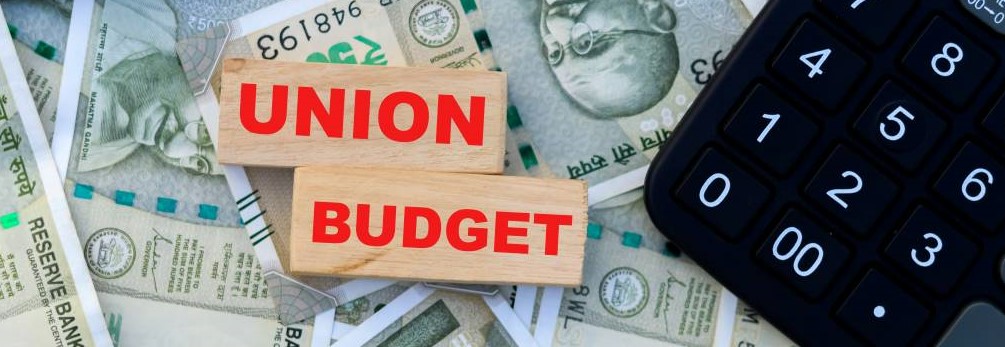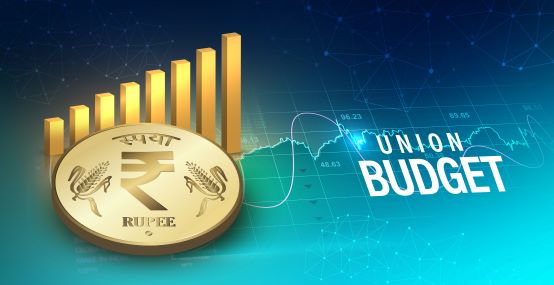What is Union Budget and Why it so Important

Article 112 of the Indian Constitution mandates that a budget should be presented to Parliament prior to the start of each fiscal year. For the upcoming fiscal year, which starts on April 1 and ends on March 31 of the following year, the Union Budget is expected to show some positive changes in mitigating the rise of inflation.
The estimated government payables and receivables for a given fiscal year are described in detail in the Union Budget. Capital budget and revenue budget are the two main sections of this budget statement.
Both the government's revenue inflows and outflows are reflected in its revenue budget. The two categories of revenue receipts are tax income and non-tax revenue. The expenses incurred to keep the government's operations running smoothly and offer inhabitants a variety of services are known as revenue expenditures. If revenue expenditures exceed revenue inflows, the government has a revenue deficit.
Government capital payments and receipts are included in the capital budget. Loans from the general public, other governments, and the RBI account for the majority of the government's capital receipts. Capital expenditure is the term used to describe the creation of tools, furnishings, structures, buildings, healthcare facilities, educational facilities, etc. A fiscal deficit occurs when the government's overall spending is higher than its overall revenue.
Importance of a Union Budget
The primary goal of the Union Budget is to promote social justice and equality while also encouraging quick and balanced economic growth in our nation. The main goals that emphasize the significance of the Union Budget in India are listed below:
- Ensuring structured allocation of resources: In order to serve the interests of the nation, it is vital to use the resources at hand. In order to promote public welfare, the government must maximize profits, which is accomplished through allocating resources as efficiently as possible.
- Work towards reducing the unemployment and poverty level: The elimination of poverty and the expansion of employment possibilities are two other goals of the Union Budget. This will make sure that every person of the nation has access to facilities for health care, education, and basic needs like food, shelter, and clothing.
- Reduce income disparities and wealth related concerns: Through taxes and subsidies, the budget helps to shape the distribution of income. It contributes to ensuring that the rich class pay a high rate of tax, hence lowering their disposable income. On the other hand, the lower income group, gets taxed at a reduced rate to make sure they have enough money, whenever required.
- Keep an eye on the prices: The Union Budget also assists in minimizing economic turbulence. It ensures that inflation and deflation are handled properly, resulting in economic stability. When there is inflation, surplus budget plans are implemented, and when there is deflation, deficit budget tactics are created. As a result, prices in the economy are kept stable.
- Changes in the Tax System: The country's direct and indirect taxes may alter, according to the Union Budget. The income tax rates and tax brackets are changes as a result. For instance, this budget is anticipated to chalk out some important aspects of tax, and how are we planning to manage it effectively in the next fiscal year.
Who prepares the Union Budget?
The process of creating and presenting the budget is given to the finance minister, however the NITI Aayog, other ministries, and the ministry of finance all participate in the budget-making process through discussions. The ministry of finance releases spending recommendations at the start of each new fiscal year. Different ministries, Union Territories, departments, and the armed forces produce their budget estimates in accordance with the standards. The departments/ministries and the department of expenditure, a crucial division of the ministry of finance, meet in-depth after that. The budget is ultimately created by the finance ministry's budget section. Pre-budget discussions are also held with stakeholders like economists, farmers, the Federation of Indian Industries, and others in addition to these. The finance minister meets with the prime minister to discuss the tax suggestions after making a decision. The Union Budget of India is then presented by the finance minister after briefing the Cabinet. The finance bill, appropriation bill, revenues budget, spending budget, annual financial statement, macroeconomic framework, medium term fiscal policy, and others are all included in the finance minister's budget speech to the Lok Sabha.
This year’s Union Budget is to be declared on February 01, 2024.
Please Enter Email
Thank you.
Related content

Articles - Personal Finance
What is PM Gati Shakti Yojana
Hon'ble Finance Minister Nirmala Sitharaman unveiled three major economic railway corridors in the interim budget of 2024 for the PM Gati Shakti Yojana. Explore detailed information about PM Gati Shakti Yojana.

Articles - Personal Finance
Analysis of Interim Budget 2024
Get to knwo about the impact of interim budget 2024 and a detailed analysis in this article.

Articles - Personal Finance
What Is a Surplus Budget
Learn about surplus budget and how a budget surplus impacts the economony.

Articles - Personal Finance
What is a Budget Deficit
Find out the importance of budget deficit. Cause of budget deficit and What is the relationship between budget deficit and stock markets

Articles - Personal Finance
Union Budget 2024 – Trivia Part 2
The Union budget 2024 presentation is just around the corner. Let us look at some trivia regarding the Union budgets from the past

Articles - Personal Finance
Union Budget: Key Details & Importance
As we come closer to February 1, the chatter around the expectations over Union Budget increases. From young college students looking to start their careers and small business owners to leading economists and industrialists, almost every Indian citizen keeps a tab on the Budget announcement. Let us discuss what is Union Budget and its importance for the economy.

Articles - Personal Finance
Impact of the Budget 2024 on Share Markets
The Union Budget 2024 got quite a cheer from the share market as major indices ended on a positive note. The NIFTY 50 and the Sensex benchmark indices gained during the Budget speech and finished green.

Articles - Personal Finance
What to Expect From Budget 2022 for Individuals and Salaried People
Over the last two years, individuals, especially salaried people, have taken quite a hit because of the pandemic. Work from home has not only increased expenses such as electricity and WiFi bills but has also put a strain on take-home salary. Naturally, people hope that the government will step in and ease some of these troubles through their Union Budget announcements.

Articles - Personal Finance
What is the impact of the Union Budget on the Indian Stock Markets
Indian stock markets are dynamic prone to ups and downs depending on a host of factors. Every year, one major event that impacts the equities and bond markets is the announcement of the Union Budget.

Articles - Personal Finance
History of the Union Budget in India
The ritual of presenting the Indian Budget is more than two centuries old, dating back to colonial times. India's first-ever Budget was presented by James Wilson in 1860, a Scottish economist and politician.

Articles - Personal Finance
10 Taxes Affected by Budget
Taxes are the most crucial and most significant source of revenue for the Government. The Government uses the revenues generated from taxes to provide basic facilities to its citizens and the nation's overall development. For example, construction of roads, buildings, infrastructure, public healthcare facilities, providing various subsidies, etc.

Articles - Personal Finance
What is Populist Budget
A budget typically meant to please people is known as a populist budget. It spends more on lucrative schemes that can increase the Government's fiscal deficit. Such a budget doesn't have any enduring positive impact on the country's economy.

Articles - Personal Finance
What are the Components of Union Budget
The Union Budget of India has two main components, each with two sub-components. To know more in detail, visit the link.

Articles - Personal Finance
Types of Budget in India
Deep dive into the three different types of government budgets and their impact on the economy.

Articles - Stocks
What is the Budget? Union Budget for Beginners
The Finance Minister of India presents the Union Budget on the first day of February every year. It is also known as the annual financial statement of the country. It contains the details of the revenue sources and expenses undertaken by the Government during the applicable financial year.

 Top Mutual Funds
Top Mutual Funds







COMMENT (0)